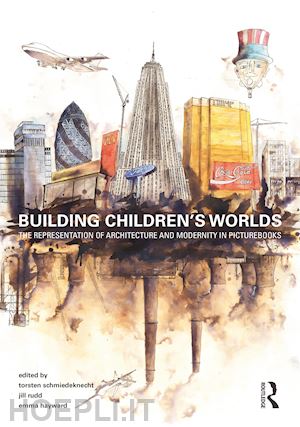Torsten Schmiedeknecht is a Reader in Architecture at the University of Liverpool. His research interests include the representation of architecture in print media, rationalism in architecture and architectural competitions. He is the co-editor of Modernism and the Professional Architecture Journal, The Rationalist Reader, Rationalist Traces, An Architect’s Guide to Fame and Fame and Architecture. In 2016 he was the recipient of an RIBA Research Trust Award for his project The representation of Modern Architecture through illustrations in postwar British Children’s Literature, which resulted in a co-authored paper (‘Absent Architectures: Post-War Housing in British Children’s Picture Books’) with Emma Hayward, and the exhibition Building Children’s Worlds at RIBA North in Liverpool in Spring 2019. Jill Rudd is a Professor of Literature in the English Department at the University of Liverpool, where, amongst other things, she teaches medieval literature and children’s literature. Chiefly a medievalist with an interest in eco-criticism, her publications include Greenery: Ecocritical Readings of Late Medieval English Literature (MUP, 2007) and various articles and chapters on mice, clouds, flowers and plants. She has also written on Sir Gawain and the Green Knight and The Secret Garden and in the past, on Charlotte Perkins Gilman’s short stories. She has supervised postgraduate theses on issue-led children’s literature written for older children readers and young adults. Emma Hayward is a secondary school English teacher and Honorary Research Fellow at the University of Liverpool. Her research interests include curriculum design and 20th- and 21st-century literature – in particular, the relationship between literature and the built environment, verbal-visual narratives and postmodernism/late postmodernism. She has published on children’s literature and the built environment. Her publications include ‘Absent Architectures: Post-War Housing in British Children’s Picture Books, 1960-present’ and ‘"Horrible muddy English places": Downriver, Swandown, and the Mock-Heroic Tradition’.











